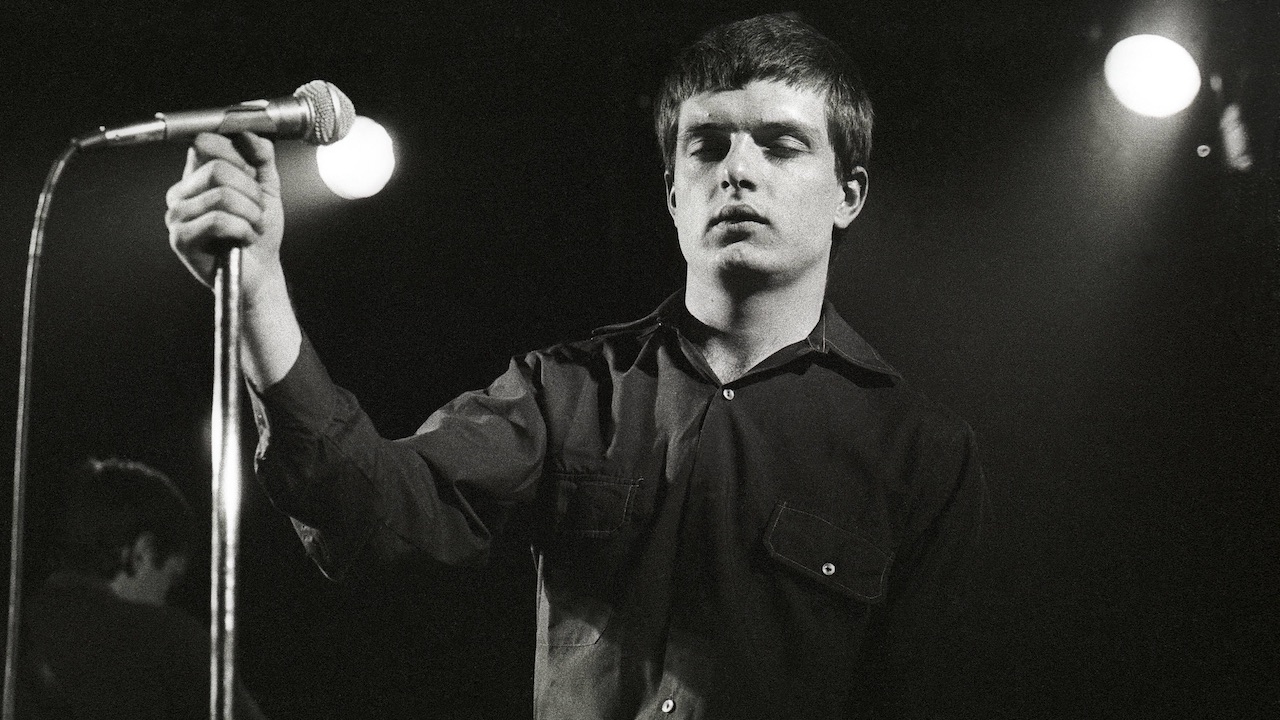“I slid to the floor in shock. I didn’t speak, didn’t want to say a word to anyone.” The day that Joy Division learned their friend and frontman Ian Curtis had died
Remembering Joy Division vocalist Ian Curtis

On May 18, 1980, the day before their band Joy Division were due to fly out to the United States for their first American tour, Ian Curtis and Bernard Summer had planned to go water-skiing in Blackpool with friends from another band, Section 25. When Curtis didn't show up at their arranged meeting spot in Macclesfield at the appointed time, Sumner travelled up to the Lancashire seaside town on his own, aware that his friend had gone to see his estranged partner Deborah the previous evening to discuss their separation.
Sumner remembers having a "brilliant day" with his friends, and was in high spirits when he returned to their house in the late afternoon. It was around 4pm, he recalls, when the phone rang, and one of the Section 25 guys handed him the receiver, telling him that his manager Rob Gretton was on the line.
"He said, ‘I've got a bit of bad news for you. Ian's committed suicide’," Sumner recalled in a 1994 interview with MOJO magazine. "‘You mean he's tried to kill himself?’ ‘No, he's done it’... The whole room just turned upside-down."
Curtis had been found dead in the kitchen of his marital home by his wife Deborah around mid-day on May 18. He had died by suicide. He was 23 years old.
"Poor Rob, he had to tell me a couple of times before it sank in," Sumner, now the frontman of New Order, wrote in his 2015 memoir Chapter and Verse. "I slid to the floor in shock. I didn’t speak, didn’t want to say a word to anyone. Section 25 really looked after me out there. Everyone was good to me, the guys from A Certain Ratio too, but I didn’t really speak until the funeral. Everyone else went to see Ian in his coffin beforehand, but I couldn’t face that. I wanted to remember him as he was when he was alive."
Peter Hook, Joy Division/New Order bassist, received the news of his friend's passing around the same time.
"I was the first of the group to be told," he told MOJO's Jon Savage in July 1994." I was just about to sit down and have my dinner and the phone rang: ‘I'm Sgt so and so, and I'm sorry to inform you that Ian Curtis committed suicide last night.’ I went back in, sat down and had my dinner. I didn't say anything for about an hour. Shock. It was such a huge thing to cope with. I don't think you ever really come to terms with it."
Curtis' bandmates knew that their friend was battling depression in the months before his death. One month earlier, on April 7, he had overdosed after taking a quantity of the phenobarbitone pills that he'd been taking to attempt to manage his epilepsy.
"In the ’70s, there was a sort of stigma that you didn’t want to admit that there was anything wrong with you," Joy Division/New Order drummer Stephen Morris recalled to CNN in 2022. "You would be really macho … it was a sign of weakness to say there was something wrong with you."
Looking back in 1994 in conversation with Jon Savage, Bernard Summer gave a clinical summary of the factors that, he believes, led his friend to end his life.
"It was a breakdown of his relationship, accentuated by the amount of barbiturates he was taking to subdue his epilepsy," he stated. "Barbiturates make you so you're laughing one minute, crying the next. He'd had a physical breakdown, a relationship breakdown, which caused an emotional breakdown.
"I came to terms with it straight away, because I could put my reason on why I thought he'd done it," he added. "Now I accept these things: if it's going to happen, it's going to happen. Also I don't really believe it ends there."
The latest news, features and interviews direct to your inbox, from the global home of alternative music.

A music writer since 1993, formerly Editor of Kerrang! and Planet Rock magazine (RIP), Paul Brannigan is a Contributing Editor to Louder. Having previously written books on Lemmy, Dave Grohl (the Sunday Times best-seller This Is A Call) and Metallica (Birth School Metallica Death, co-authored with Ian Winwood), his Eddie Van Halen biography (Eruption in the UK, Unchained in the US) emerged in 2021. He has written for Rolling Stone, Mojo and Q, hung out with Fugazi at Dischord House, flown on Ozzy Osbourne's private jet, played Angus Young's Gibson SG, and interviewed everyone from Aerosmith and Beastie Boys to Young Gods and ZZ Top. Born in the North of Ireland, Brannigan lives in North London and supports The Arsenal.
